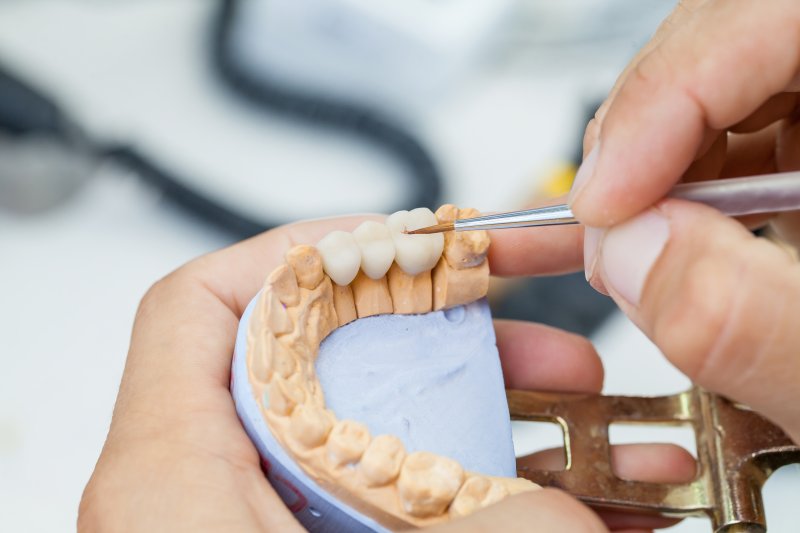August 10, 2021
How Long Do Dental Bridges Last?

If you have missing teeth, you’re probably doing your research to determine the best treatment for your smile. Dental bridges are an excellent solution that promises to be long-lasting – but how long exactly? After all, you’ll surely want a new grin that is well worth the time, money, and effort. Read along to learn how long you can expect your dental bridge to last and what you can do to maximize its lifespan.
What Are Dental Bridges?
A dental bridge is a simple yet effective solution for the loss of three or more consecutive teeth. It’s made up of two or more crowns for adjacent teeth on either side of the gap and has an artificial tooth in between them. The neighboring teeth act as abutments (anchors) that hold the bridge in place.
Dental bridges are a simple yet effective solution for missing teeth! The procedure typically only takes a few weeks to complete. During your first visit, your dentist will remove a thin layer of enamel on the adjacent teeth to ensure a perfect fit. They will take impressions and send them over to the dental lab fabricating your bridges. After they’re created, you will return to the clinic, and your dentist will use a special cement to secure it in place.
How Long Can a Dental Bridge Last?
The lifespan of a dental bridge varies from person to person. Several factors like your oral hygiene routine, diet, and lifestyle can significantly influence its longevity. However, you can generally expect your device to last anywhere from five to seven years. But with good oral hygiene and regular dental visits, your bridge can last over a decade!
Why Do Dental Bridges Fail?
In most cases, dental bridges fail for the same reasons that cause issues with your natural teeth. Here are a few common causes for dental bridge failure:
- Poor oral hygiene. This is the most common reason behind dental bridge failure. Improper oral care can lead to decay in your natural (or abutment) teeth.
- Unhealthy habits. Nail-biting, chewing on a pen, frequent snacking, and grinding your teeth at night can cause trauma to the supporting abutment.
- Insufficient abutment. Dental bridges require sufficient support from the abutment or your natural teeth to survive and function properly. Otherwise, instability can cause your dental bridge to fail.
How to Care for Your Dental Bridge
Here are some ways you can ensure your replacement teeth last as long as possible:
- Brush your teeth twice a day with a soft-bristled toothbrush and floss daily
- Use fluoride toothpaste and antiseptic mouthwash
- Avoid chewing on ice, nail-biting, or using your teeth as tools
- Stay away from brittle foods and hard candy
- Regularly visit your dentist for routine cleanings and checkups
In short, the lifespan of your dental bridge largely depends on you. As long as you practice good oral hygiene and visit your dentist regularly, you can enjoy a beautiful, restored smile for several years!
About the Author
Dr. Charles Beliveau has helped patients achieve and maintain their best smiles for over 30 years. He completed his education at the University of Maryland School of Dentistry, one of the oldest dental programs in the world. If you have three or more consecutive missing teeth, Dr. Beliveau can restore your smile with a fixed dental bridge. In just a few appointments, you can have a full mouth once again! Visit our website or call (978) 687-5900 to schedule a consultation with Dr. Beliveau.
No Comments
No comments yet.
RSS feed for comments on this post.
Sorry, the comment form is closed at this time.
